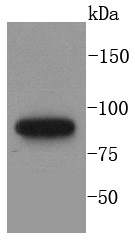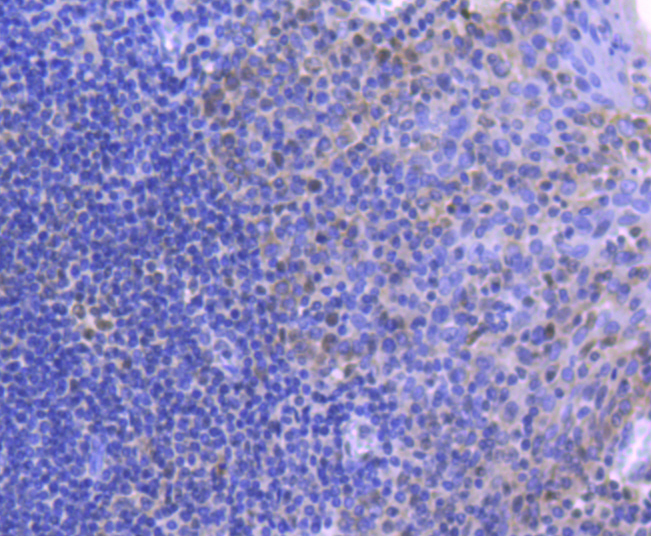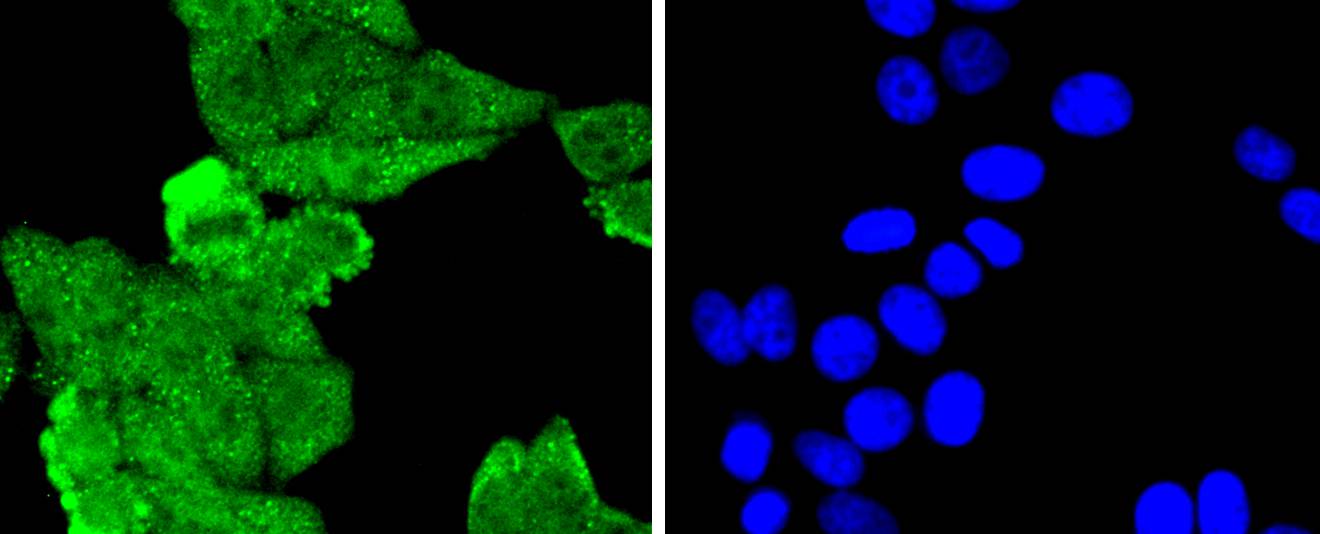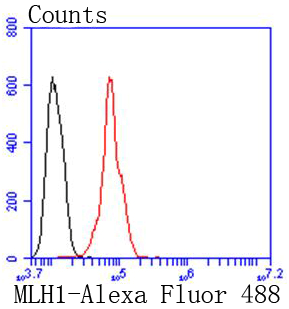Product Detail
Product NameMLH1 Rabbit mAb
Clone No.SP08-04
Host SpeciesRecombinant Rabbit
Clonality Monoclonal
PurificationProA affinity purified
ApplicationsWB, ICC/IF, IHC, IP, FC
Species ReactivityHu, Ms, Rt
Immunogen Descrecombinant protein
ConjugateUnconjugated
Other NamesCOCA 2 antibody COCA2 antibody DNA mismatch repair protein Mlh1 antibody FCC 2 antibody FCC2 antibody hMLH 1 antibody hMLH1 antibody HNPCC 2 antibody HNPCC antibody HNPCC2 antibody MGC5172 antibody MLH 1 antibody MLH1 antibody MLH1_HUMAN antibody MutL homolog 1 (E. coli) antibody MutL homolog 1 antibody MutL homolog 1 colon cancer nonpolyposis type 2 antibody MutL homolog 1, colon cancer, nonpolyposis type 2 (E. coli) antibody MutL protein homolog 1 antibody MutL, E. coli, homolog of, 1 antibody
Accession NoSwiss-Prot#:P40692
Uniprot
P40692
Gene ID
4292;
Calculated MW85 kDa
Formulation1*TBS (pH7.4), 1%BSA, 40%Glycerol. Preservative: 0.05% Sodium Azide.
StorageStore at -20˚C
Application Details
WB: 1:1,000
IHC: 1:50-1:100
ICC: 1:50-1:200
FC: 1:50-1:100
Western blot analysis of MLH1 on A431 cells lysates using anti-MLH1 antibody at 1/1,000 dilution.
Immunohistochemical analysis of paraffin-embedded human tonsil tissue using anti-MLH1 antibody. Counter stained with hematoxylin.
ICC staining MLH1 in HepG2 cells (green). The nuclear counter stain is DAPI (blue). Cells were fixed in paraformaldehyde, permeabilised with 0.25% Triton X100/PBS.
Flow cytometric analysis of Hela cells with MLH1 antibody at 1/50 dilution (red) compared with an unlabelled control (cells without incubation with primary antibody; black). Alexa Fluor 488-conjugated goat anti rabbit IgG was used as the secondary antibody
DNA-mismatch repair (MMR) is an essential process in maintaining genetic stability. Lack of a functional DNA-mismatch repair pathway is a common characteristic of several different types of human cancers, either due to an MMR gene mutation or promoter methylation gene silencing. MLH1 is an integral part of the protein complex responsible for mismatch repair and is expressed in lymphocytes, heart, colon, breast, lung, spleen, testis, prostate, thyroid and gall bladder tissues, and is methylated in several ovarian tumors. Loss of MLH1 protein expression is associated with a mutated phenotype, microsatellite instability and a predisposition to cancer. In hereditary nonpolyposis colorectal cancer (HNPCC), an autosomal dominant inherited cancer syndrome that signifies a high risk of colorectal and various other types of cancer, the MLH1 gene exhibits a pathogenic mutation. Certain cancer cell lines, including leukemia CCRF-CEM, colon HCT 116 and KM12, and ovarian cancers SK-OV-3 and IGROV-1, show complete deficiency of MLH1, while MLH1 is expressed in 60% of melanomas, 70% of noninvasive squamous cell carcinomas and 30% of invasive squamous cell carcinomas.
If you have published an article using product 48713, please notify us so that we can cite your literature.






 Yes
Yes



